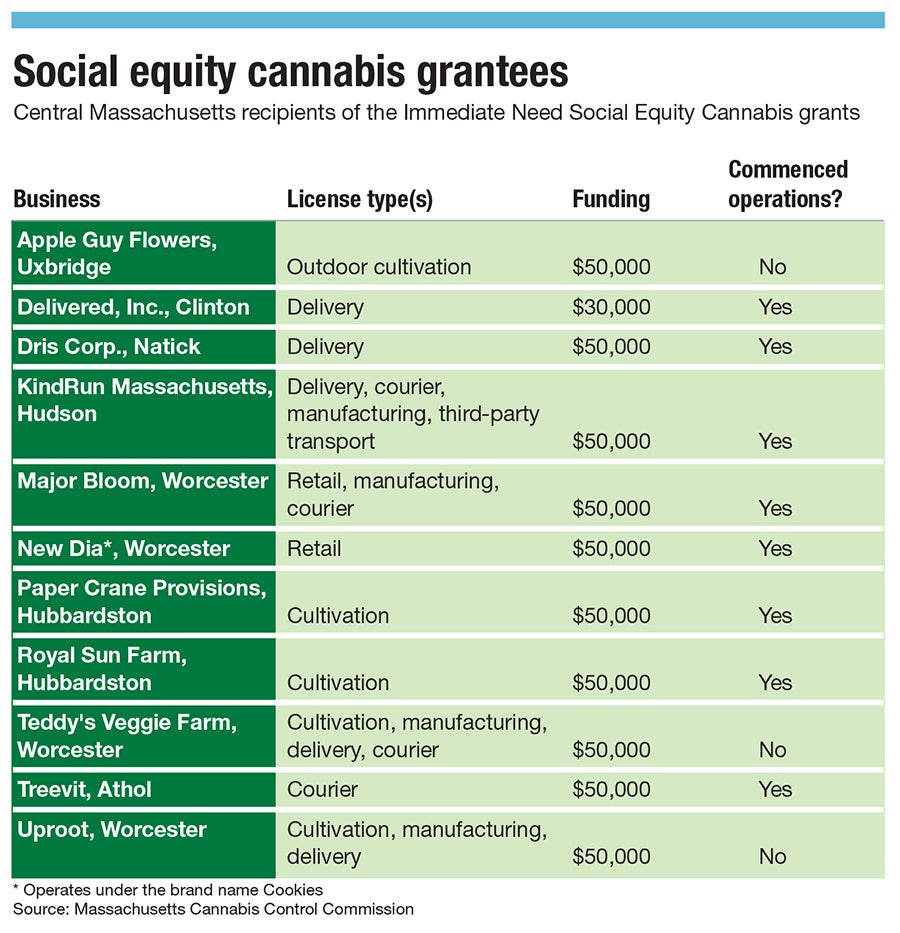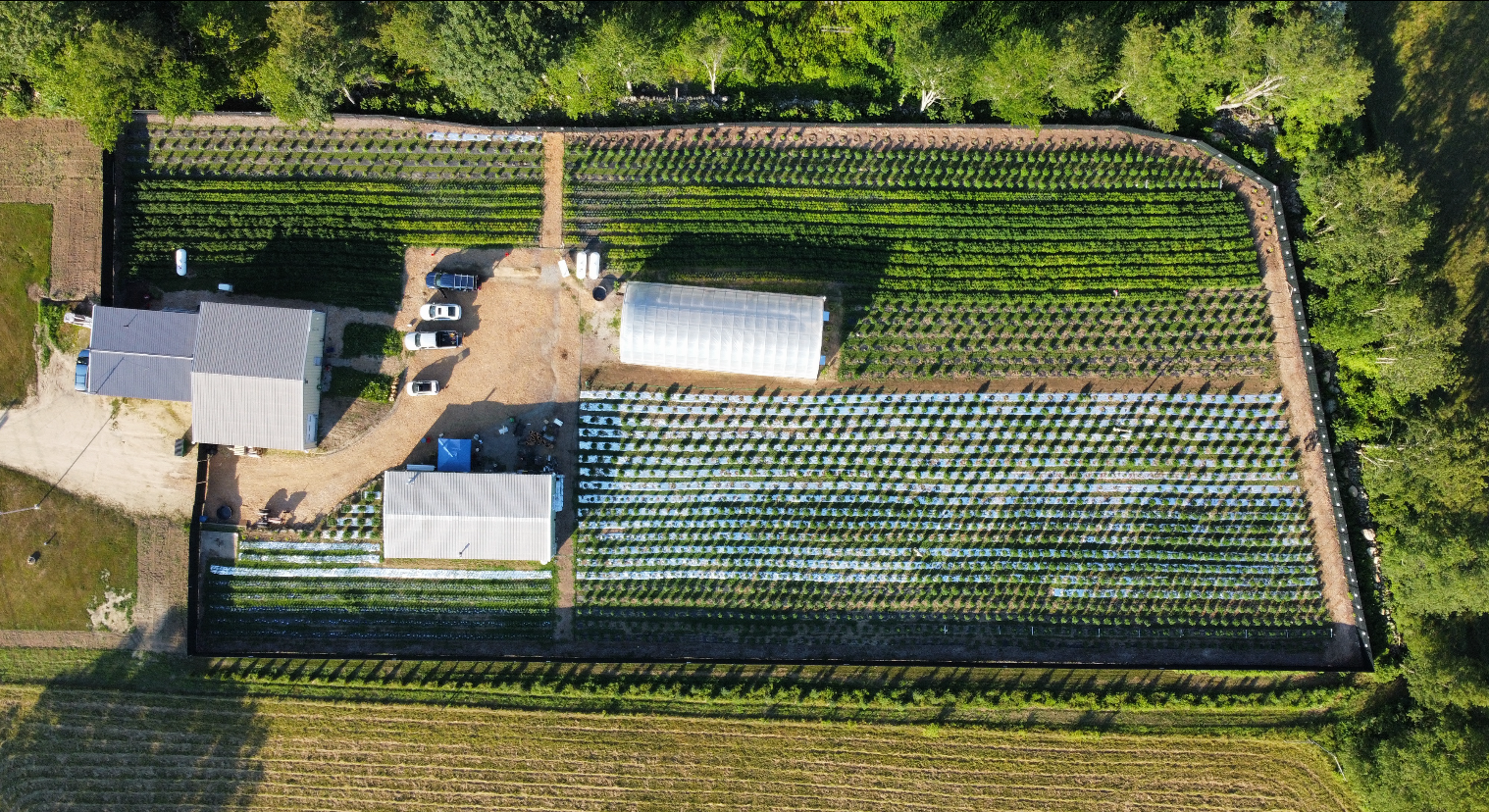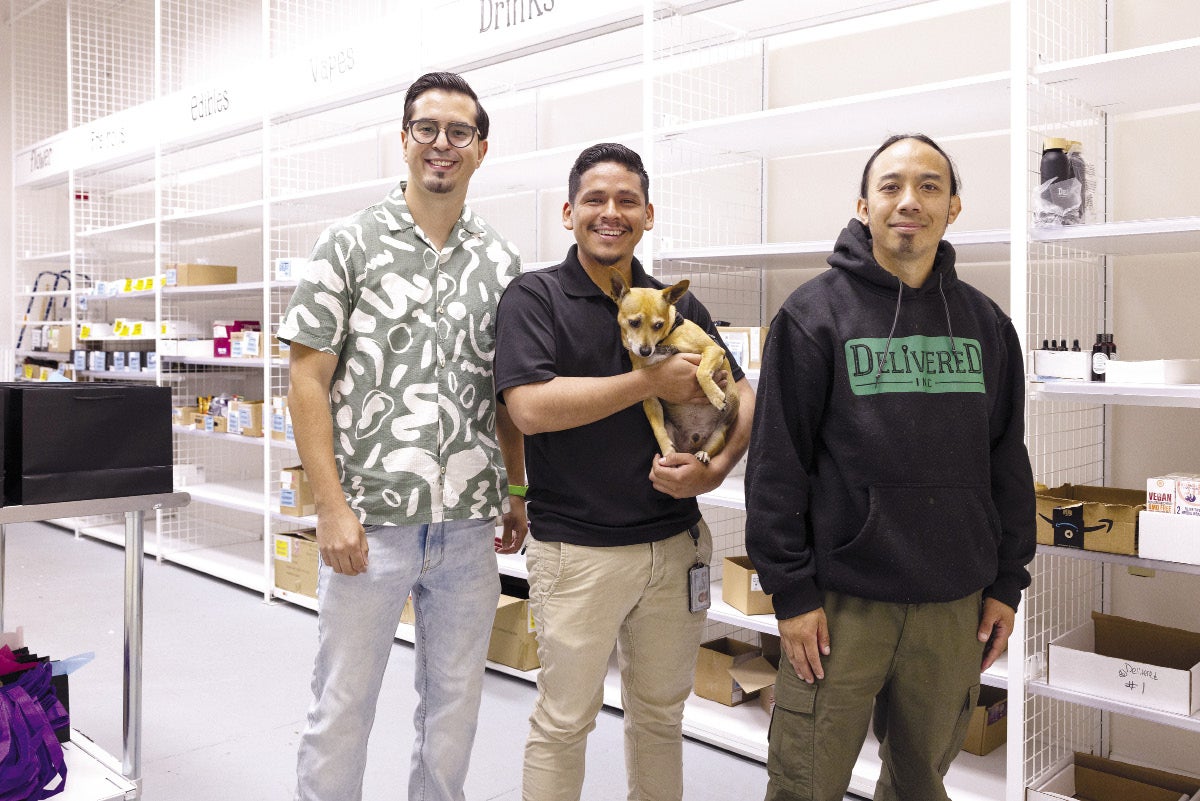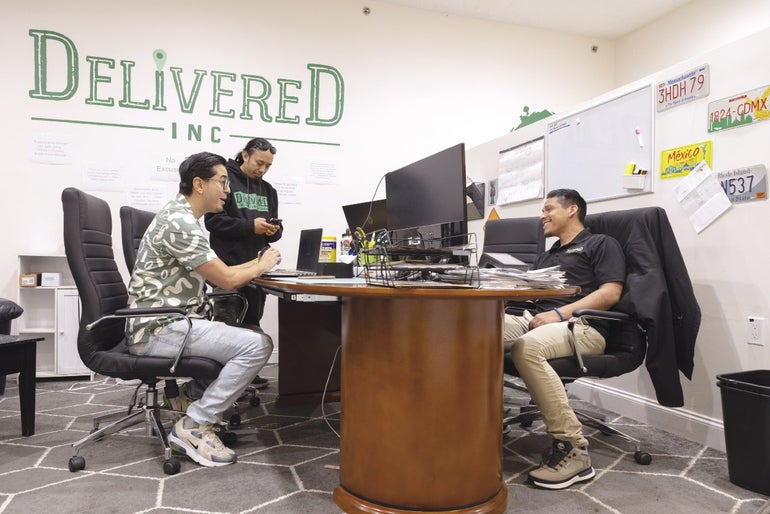Social equity cannabis companies say more support needed.
Get Instant Access to This Article
Subscribe to Worcester Business Journal and get immediate access to all of our subscriber-only content and much more.
- Critical Central Massachusetts business news updated daily.
- Immediate access to all subscriber-only content on our website.
- Bi-weekly print or digital editions of our award-winning publication.
- Special bonus issues like the WBJ Book of Lists.
- Exclusive ticket prize draws for our in-person events.
Click here to purchase a paywall bypass link for this article.
EDITOR'S NOTE: The opening of applications for the next round of cannabis equity funding was announced on Sept. 25.
In April, 11 Central Massachusetts cannabis businesses that are part of the state’s social equity efforts received a combined $530,000 in government funding, a slice of $2.3-million statewide release of funds to 50 businesses.
Funded by a portion of cannabis taxes, the first-of-its-kind Cannabis Social Equity Trust Fund is designed to give entrepreneurs from populations harmed by marijuana prohibition and enforcement, disproportionately targeting communities of color, a fighting chance to participate in the state’s highly competitive cannabis industry.
“With the Cannabis Social Equity Trust Fund, we’re creating a sustainable and inclusive path to the industry for Massachusetts entrepreneurs that have faced barriers to entry,” Gov. Maura Healey said in an April press conference announcing the release of the grant funding. “This funding will fill critical gaps necessary to allow social equity businesses to grow and succeed here in Massachusetts."
First signed into law in 2022, the trust fund’s implementation was delayed by flaws in the ways the law was drafted, leading to less money being available and a longer roll-out period than initially anticipated.
The initial round of funding was meant to be a lifeline for businesses facing mounting debt. The funds helped fill critical gaps, but months later, little progress has been made in making Central Massachusetts social equity cannabis companies sustainable, as they continue to face the possibility of financial failure.
With difficulties in the local cannabis economy and social equity companies treading water, the next steps in the state’s program may prove to be a make-or-break moment for both businesses and the social equity program.
“We're going to continue being stuck on this hamster wheel that we're on right now,” said Ruben Seyde, CEO and co-founder of Delivered Inc., a cannabis delivery company in Clinton. “This next round of funding can really open up the door for someone like us to pay off immediate needs and then focus on growth.”

No safety nets
Cannabis’ illegal status at the federal level has made access to banking and traditional sources of capital nearly impossible. While still prevented from being traded on American stock exchanges, some of the largest cannabis corporations in Massachusetts are publicly traded companies in Canada, allowing access to much-needed capital smaller businesses can’t secure.
Instead, social equity companies like Paper Crane Provisions, an outdoor cannabis farm in Hubbardston which received $50,000 from the state, largely relied on people close to its owners to get their business off the ground, without the help of large financial backers or federal support.
“You don't have safety nets, like a small business loan. It's really hard to raise money. It's mostly private lending,” said Lisa Mauriello, a co-founder of Paper Crane who started the business with her husband Boey Bertold. “We talked like family, friends, friends of family. It was like this sort of community, which then adds a whole other level of pressure, because it's not just like the bank that you owe money to. It's like people that you love who entrusted, in some cases, their life savings to you.”

The need for financing can be exacerbated by the incredibly long time it can take to get a Massachusetts cannabis business to the point where it's bringing in revenue, as a mirage of regulations at both the local and state level, along with remaining stigma, create a seemingly never-ending path of roadblocks and deadends.
Finding a municipality willing to welcome a cannabis business can be difficult, even in places where a majority of residents cast ballots in favor of legalization back in 2016, said Bertold.
“There are just so many processes involved,” he said. “It can sometimes take one or two years just to get an agreement from the municipality to move forward with your business. There's no real definite answer that you're even going to be able to commence operations.”
As a result, almost six years after the first retail sale of recreational cannabis in the state, some Central Massachusetts social equity companies are still working to just get their doors open.
One of them is Uproot, a Worcester-based cultivation and delivery company. Uproot, which received $50,000 from the state in April, first applied for a license in 2019, but problems have piled up in the years since. Those issues included undisclosed structural issues at its planned facility, which forced the company to find another location, and $80,000 in rent payments while waiting eight months for necessary state inspections of its new facility.
“At times, it feels like you're drowning in red tape,” Dave Aiello, co-owner of Uproot, told WBJ via email. “For instance, failing an inspection over something as minor as using the wrong type of lockbox for your keys can delay things for months, all while you're paying rent with no revenue. Meanwhile, our investors – friends and family – are left wondering why the business isn’t up and running yet. It can be incredibly demoralizing.”
The challenges of being in the cannabis industry don’t dissipate after receiving permission from the state, said Mauriello.
“I know other people that are going through the application process and I tell them, ‘Even though this is really stressful, just wait,’ because once you commence operations, it's like a whole other thing,” she said. “It feels like just getting to that point, you want to pop champagne, and you're like, ‘No, no, no.’”

‘Hanging on by a thread’
The $2.3 million in April funding was given to businesses with immediate needs to pay bills. Delivered Inc. received $30,000 of that money.
“The immediate need grant was like a lifeboat we were fortunate enough to receive,” said Seyde. “It felt like we were out in the middle of the ocean, hanging on by a thread. I can’t emphasize enough how much of a meaningful impact the grant had for us.”
Grant recipients could use the funds to cover personal expenses, rent, utilities, regulatory fees, debt service, and professional expense services related to outstanding bills, including legal and accounting fees.
“It was a bit of a painful time,” Seyde said of the grant application process, which he said involved about six months of waiting before receiving the funds. “It was a very concerning period, knowing that we had money that was guaranteed to come in, but we also had bills that were passed due and putting us into default.”

Business has been especially tough for delivery operators and couriers, two types of licenses specifically set aside for social equity applicants.
Delivery companies are allowed to purchase and store their own products, while couriers make deliveries from retail storefronts they’ve signed contracts with, somewhat akin to UberEats or GrubHub’s business model.
On the recommendation of then-governor Charlie Baker, who felt rolling out home delivery at the same time as the first retail sales would be overly ambitious, the Cannabis Control Commission voted 4-1 to delay the implementation of delivery until after the first adult-use dispensaries were open.
The first legal adult-use delivery sale wouldn’t happen until June 2021, two and a half years after the first legal sale at a dispensary. By then, more than 140 recreational dispensaries were already operating in Massachusetts.
Strict advertising regulations and social media restrictions on cannabis-related content has led to an uphill battle for delivery operators looking to capture the business of customers who were already used to shopping at dispensaries.
‘It's definitely very, very hard, and the delivery market is still growing,” said Chris Fevry, CEO of Dris Corp., a Natick delivery company he co-founded with his wife Dharry Pauyo. “Getting the word out, that's kind of the best thing to do, right?”
Through the end of June, delivery and courier operators had sold about $7.1 million worth of product in 2024, according to CCC data, compared to about $799.7 million in sales made by retail storefronts.
$27M more to grant out
While the initial money proved to be a lifeline for his delivery business, Seyde hopes lessons learned during the first round of funding can be applied to the next round.
“I hate to focus on winners and losers, but for some of the people that got $50,000, I don't understand how there was any immediate need, given that there's other businesses that just said are operating already out there who do have needs.” Seyde said. “On the bright side, for this next round of funding, they are making it into different tiers, and depending on where you are in the licensing process, will depend what tier you qualify for. That's gonna make it way more promising for us.”
Aiello expects Uproot to finally start deliveries in November and hopes the next round of funding comes with more clarity.
“More transparency is critical,” he said. “We need clear timelines, not just for us but for the people expecting payments. If there was something we could show creditors that guaranteed funds were incoming, it would ease their concerns and prevent months of waiting based solely on our word.”
This nervy waiting game comes at a time where Massachusetts businesses are facing even more turbulent waters. Dispensaries and cultivation firms, both big and small, have shuttered in the state as the price of cannabis has fallen drastically since 2018. Multiple companies are facing lawsuits over unpaid bills.
Margaret Quackenbush, director of communications for the state’s Executive Office of Economic Development, told WBJ the next, more comprehensive round of funding is expected to begin later this year, as the amount available in the fund has now ballooned to $27 million.
Urgency is key, said Fevry, who sits on the state’s Cannabis Social Equity Advisory Board.
“It's important the rest of the money gets out as soon as possible, because while businesses got their first tranche of money, they're still not doing well, and they need support,” Fevry said.
Eric Casey is a staff writer at Worcester Business Journal, who primarily covers the manufacturing and real estate industries.

